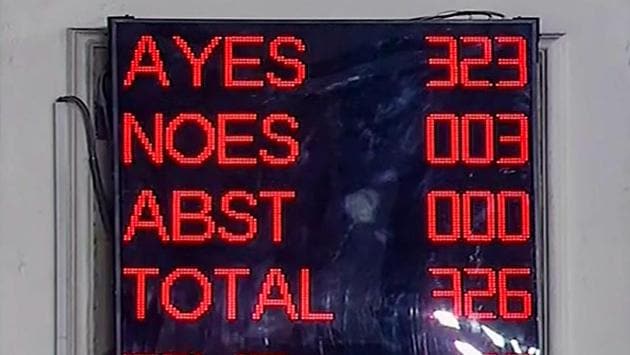Reservations will affect the concept of equality
One way or another, practically everyone will be the beneficiary of reservations for educational institutions and government jobs. Only a small fraction – and it could even be as little as 5 per cent – will not be covered
Politics is important because it has consequences. The most important is the impact on our society. Whether they intend it or not, governments can alter or amend the character of our lives. This is why the decision to change the Constitution to permit 10% reservation for those who are deemed to be economically weak out of the section of the population currently not benefitting from reservations is of great significance. If it happens, it will change the sort of people we are, affect the lives we live and influence our aspirations.

Let me start with the smaller of the two points I want to make. Till now, reservations were intended to tackle historically established social and educational deprivation. This was their justification. This is about to change. Hereafter, reservations will also become a way of undertaking poverty alleviation.
Traditionally, the rich have been taxed so as to redistribute to the poor. Now they will also be denied access to educational institutions and jobs so that these can be reserved for the poor. A further consequence of this is that merit will increasingly be superseded by birth or economic status as the way of securing a school or university education and a government job. In turn, this will affect the concept of equality. Those who are poor or socially and educationally deprived will have a better chance of securing admission to educational institutions or government jobs than those deemed to be rich.
My bigger point is more telling. We’re likely to end up a country where almost everyone will be the beneficiary of reservations. Only a small, if not minuscule, minority will be excluded.
As things stand, we have 15% reservation for the scheduled castes, 7.5% for the scheduled tribes and 27% for the other backward castes. Roughly speaking, this covers 77.20% of the population. An analysis of the criteria for the new 10% reservations for the economically weak suggests that all but a small minority will now be included.
Let’s take the main criteria one by one. Income tax data and NSSO reports suggest that the income criterion of 8 lakh per household per annum is likely to include 95% of all Indian families. An analysis of the land holding criterion leads to a similar conclusion. The agricultural census of 2015-16 reveals that 86.2% of all land holdings are under 5 acres which means that less than 14% of the country is excluded from the 5 acre cut off.
The third criterion is that the size of the family house should not be more than 1,000 square feet. Now NSSO reports in 2012 show that even the richest 20% of the country had houses with an average area of around 500 square feet. That’s half the ceiling. So, once again, perhaps up to 90% will be covered by this criterion.
So what does this mean? Very simply that, one way or another, practically everyone will be the beneficiary of reservations for educational institutions and government jobs. Only a small fraction — and it could even be as little as 5% — will not be covered.
I’m left with two questions that we should be asking of our politicians. First, is this the sort of country we want to create? And, second, what will it feel like to live in such a country?
Karan Thapar is the author of Devil’s Advocate: The Untold Story
The views expressed are personal




